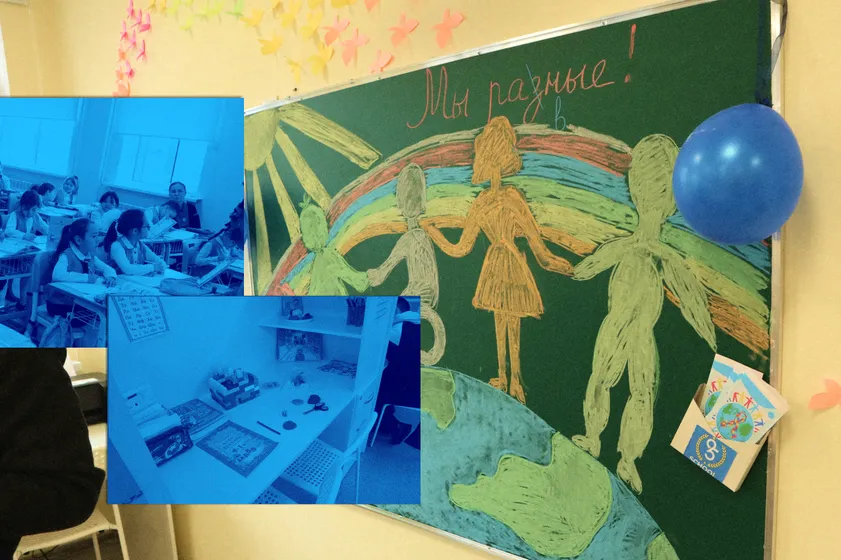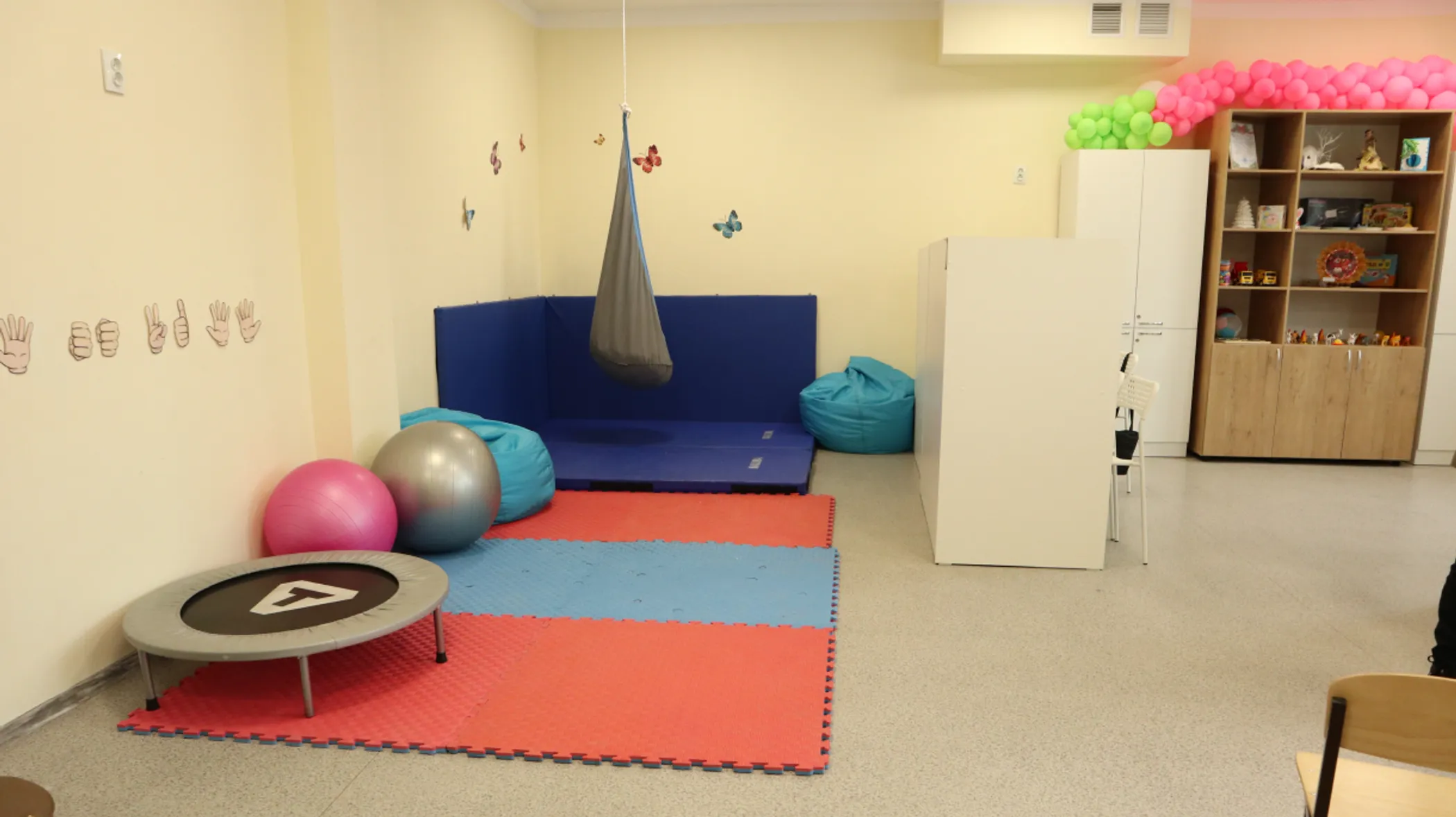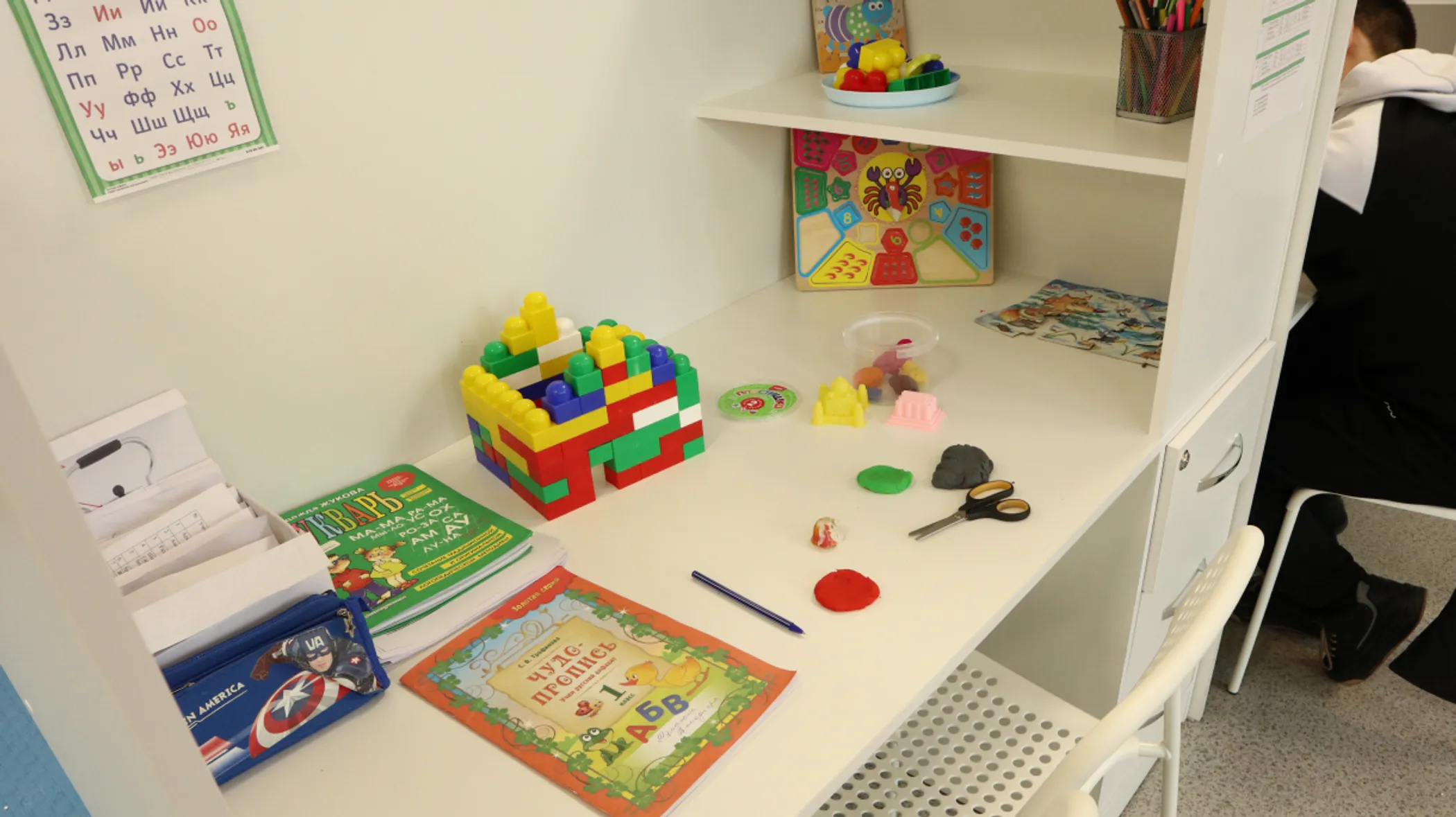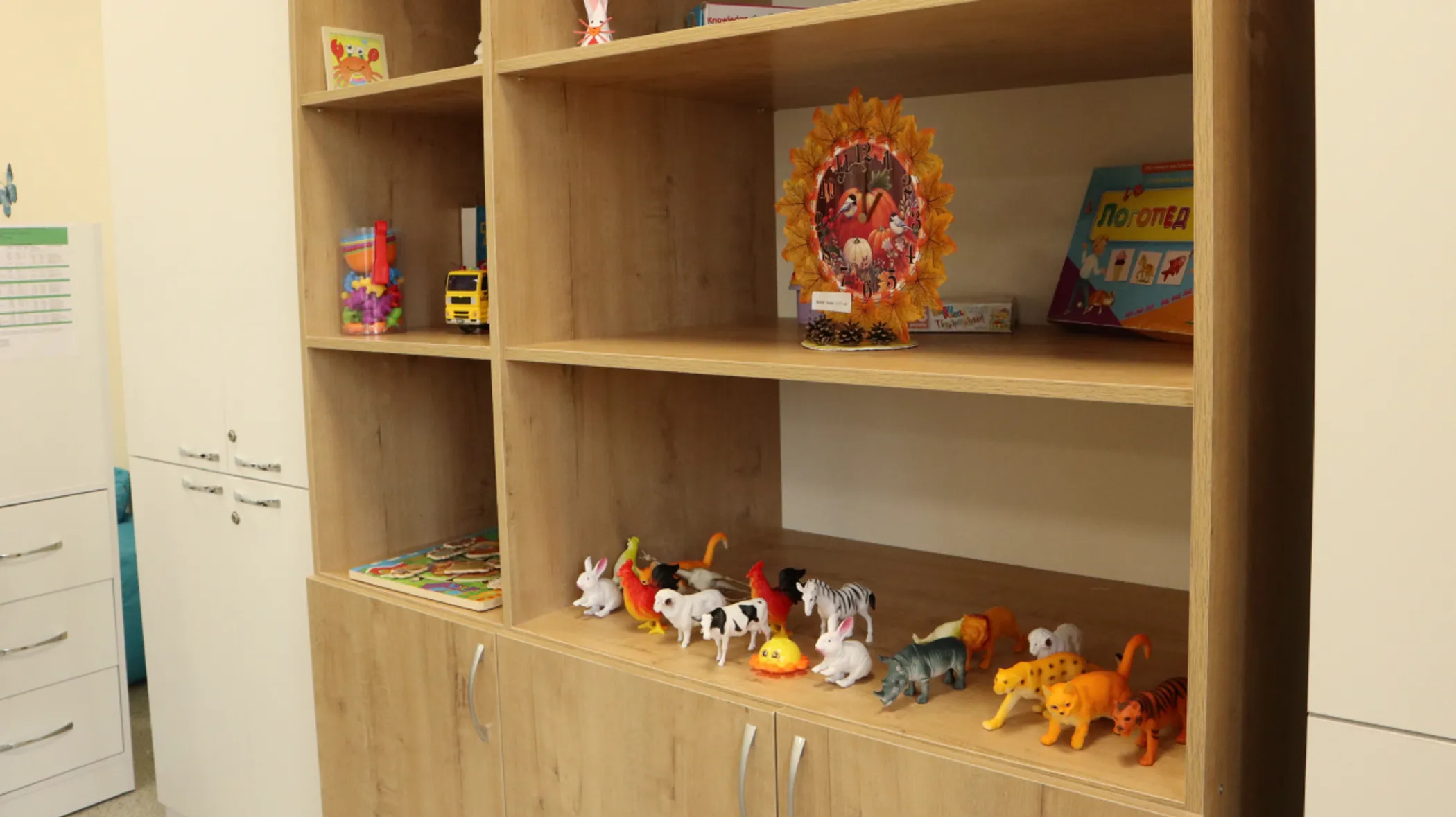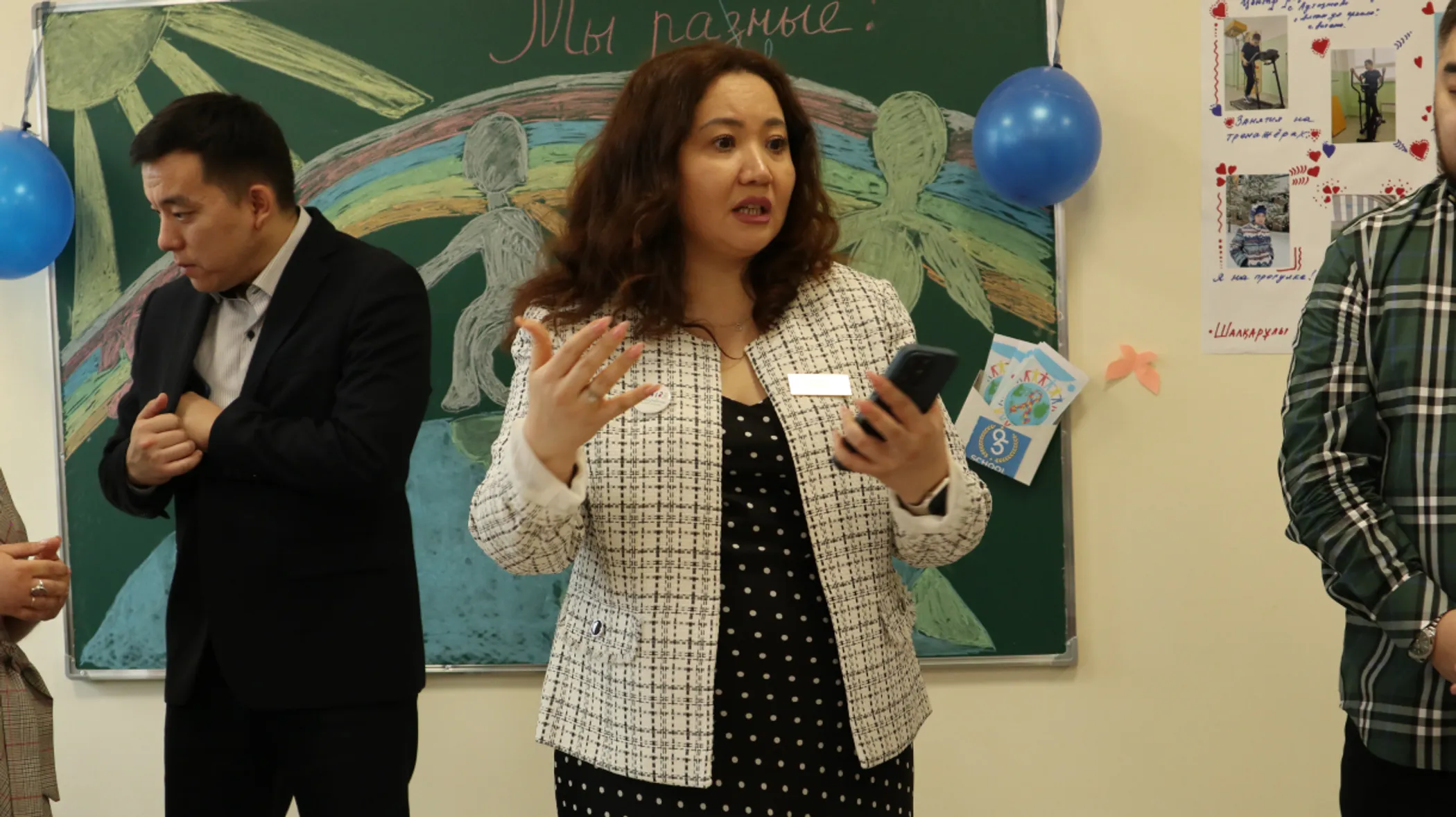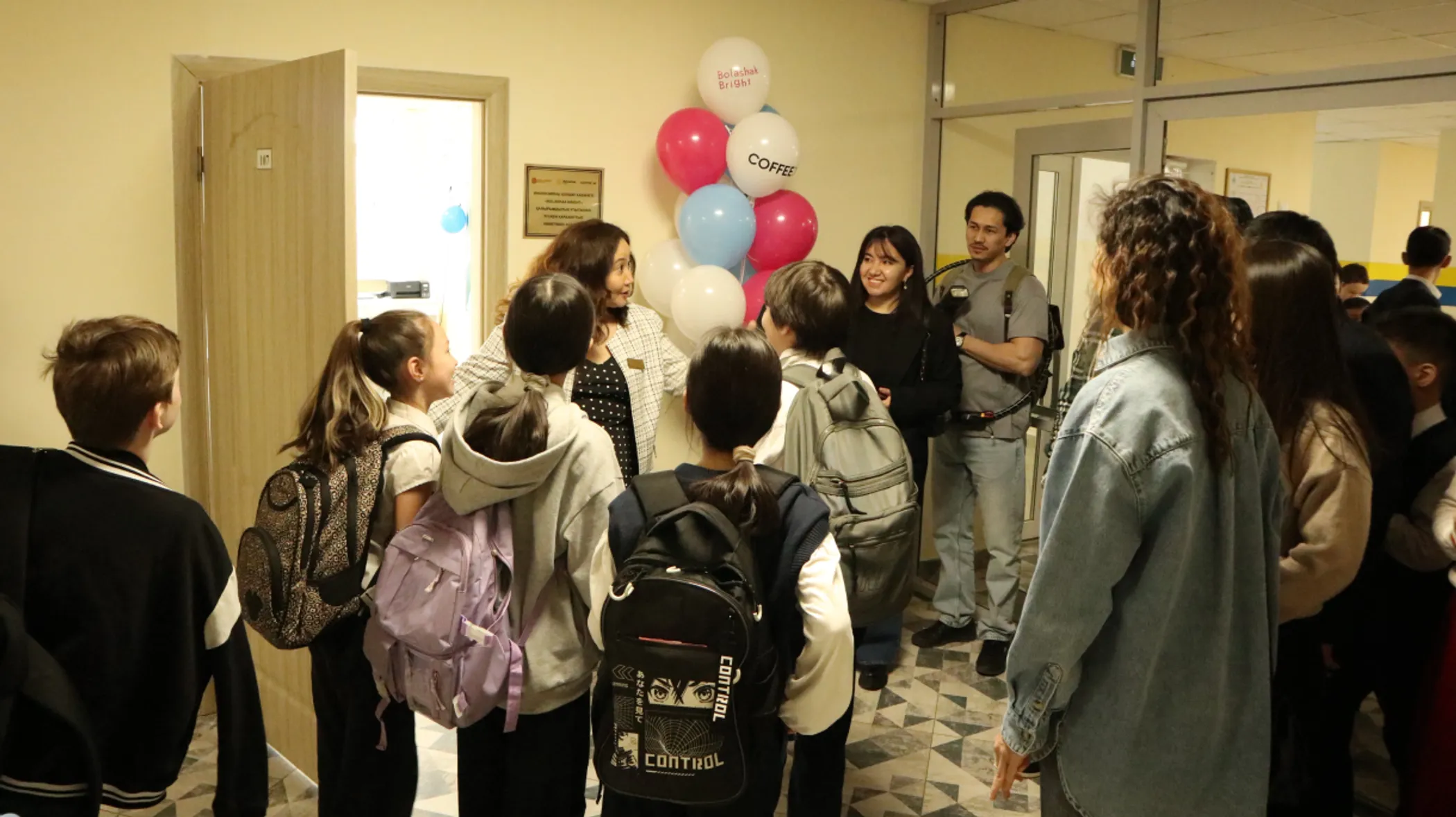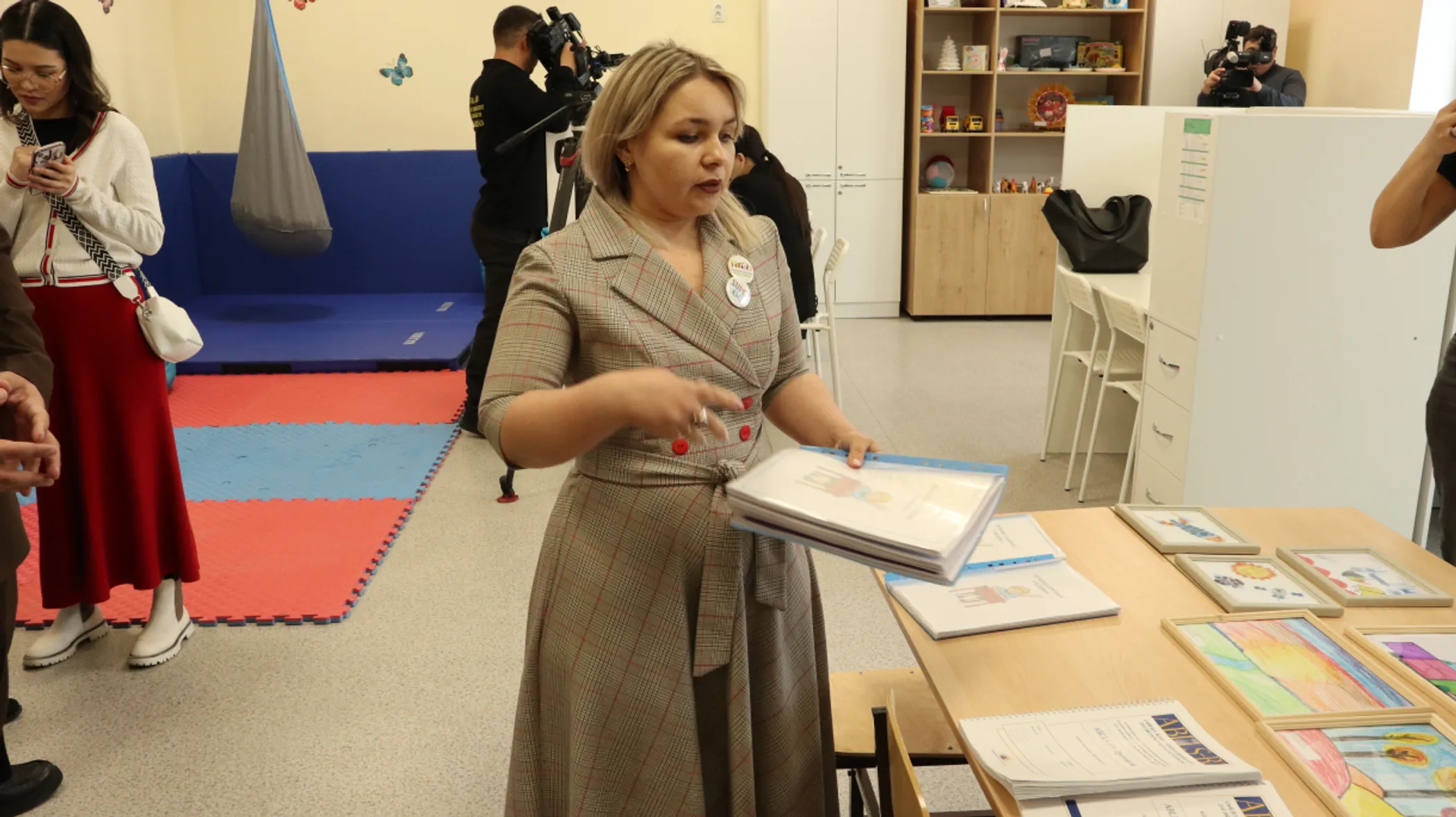“When we opened our doors, it was crucial for us to foster an inclusive environment for all children,” shared the principal of the Lyceum School №95 in Astana, Shynara Aubakirova. “We already had the conditions for neurotypical students set up, so, our first goal was to create an environment for neurodivergent children.” The school started this academic year fresh. Literally. Commissioned just before the start of the academic term last September, the school set out to establish connections with the students and their parents and sought ways to set up funding for a much-needed inclusive environment. All because a child’s behavior impacts that child first, adults see the effects later.
On April 2, the world celebrated Autism Awareness Day, and the school marked an achievement made of a thousand small steps for the occasion. In collaboration with the Bolashak Corporate Foundation, they unveiled a resource room powered by applied behavior analysis (ABA) and funded by charity. People from across the country and abroad donated to equip the room, where neurodiverse students can meet their learning needs in a tailored environment and also attend regular classrooms. The QazMonitor reporter attended the event and saw exactly how it works.
“According to our estimates, derived from global data and applied to Kazakh demographics, we have something around thirty-five thousand [neurodiversive children],” said Dinara Gaplan. The Chairwoman of the Board of Trustees of the Bolashak Corporate Foundation, she oversaw the room’s equipment and detailed its design to the press. Divided into four areas, it has a sensory space, where students can reset by lying on a mat or engaging with kinetic objects for stress relief. Additionally, there are designated areas for both group and individual activities and a dedicated desk space for the teacher. As for the chosen approach, Gaplan noted that currently, ABA stands as the sole method backed by robust research data and endorsed by scientific communities worldwide. The Foundation, she continued, has implemented this standard uniformly across all 57 resource rooms set up throughout 22 cities across the nation. Overall, the Foundation has opened 18 such rooms in the capital.
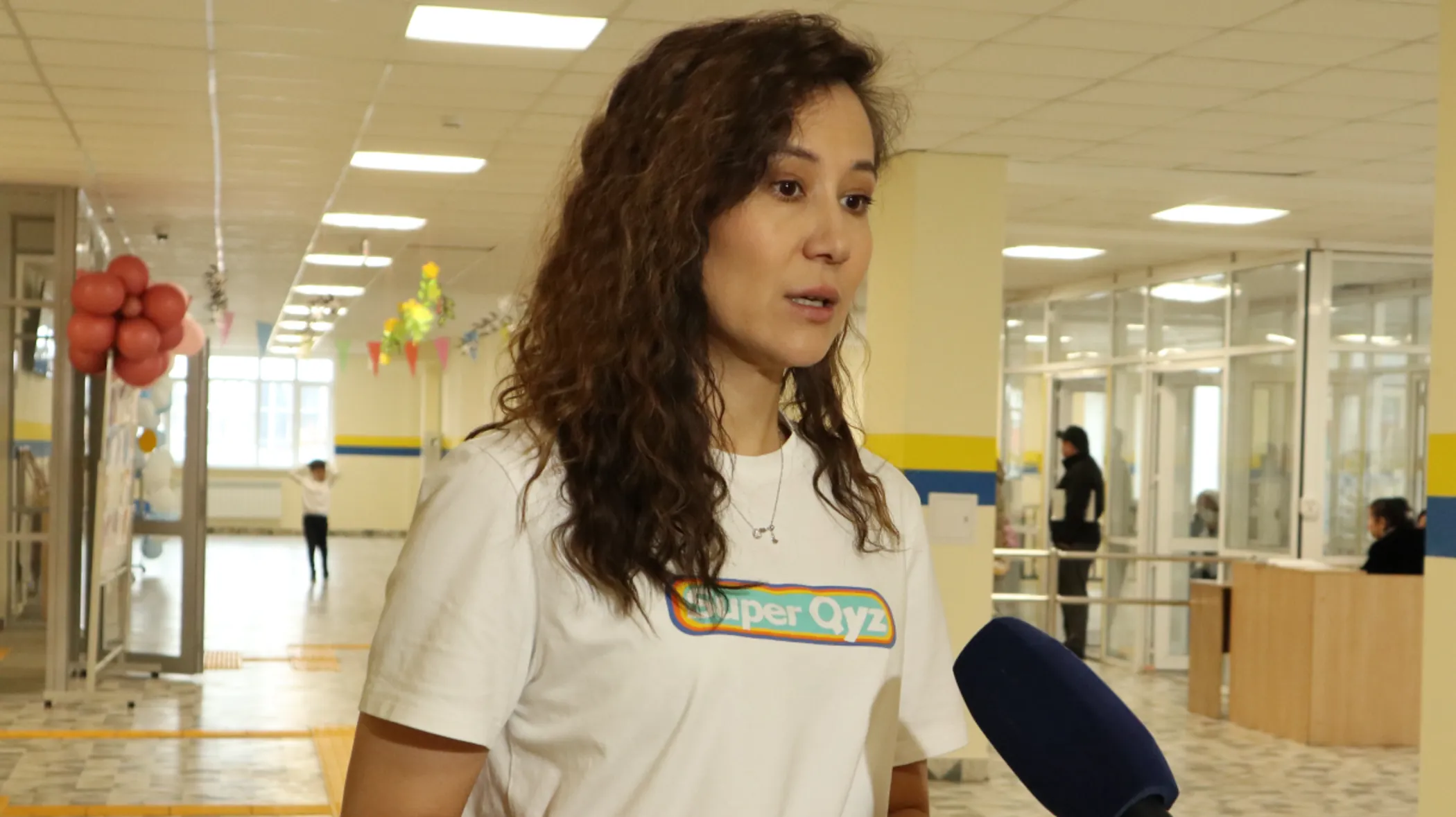
Every Child Wants to Be Included (Каждый ребёнок достоин школы) is the motto and the name of the Foundation’s project, which at its core, since July 2015, has been setting up resource rooms and providing supervision and mentorship in Kazakhstan. The project covered over 2,000 neurodiverse students and created an environment within public schools for 800 children who had previously been homeschooled. The project was also instrumental in the creation of 550 positions in inclusive education and mentoring of 3,500 specialists in ABA.
One distinctive thing about this particular resource room is how it was funded — the Bolashak Bright, a charity initiative, raised ₸781,748, or about $1,751 from 307 individuals hailing from Kazakhstan, Russia, Greece, France, and Armenia. This sum underscores the Foundation’s awareness campaign of sorts, by dividing the total sum by three hundred, the organization underscores the accessibility of donating, as every contribution amounts to roughly ₸2,546 ($5.70), an affordable figure for a local wage median.
Official statistics report that Astana is home to 3,479 neurodiverse children, with fourteen of them accommodated by the lyceum. “Our children are educated in regular classrooms and receive the level of education they need,” emphasized Shynara Aubakirova, as each neurodiverse student studies according to an individual program. The resource room's primary objective is to offer support to these children without isolating them from the classroom environment. “Mainly, our resource room is attended by primary schoolers and middle-grade students, years five to seven.”
At first, there were some challenges. Children would sometimes run away or hide, but thanks to the specialists, — and this work is going slowly — today our children have learned how to adapt to the classroom environment, navigate the cafeteria, and take care of themselves. Even within this room, students have developed the ability to socialize with their peers.
“We don’t limit ourselves to just organizing the operations of these rooms,” noted Dinara Gaplan, “We were also the first in Kazakhstan to start translating specialized literature into Kazakh.” She recalled that when the Foundation ventured beyond the capital, to Atyrau and Shymkent, they discovered that there were no methodological aids suitable for Kazakh-speaking teachers and students. “Children study in Kazakh-speaking environments, yet all the literature is in Russian. We decided it was crucial for us to focus on translating the best literature on autism into Kazakh”.
So far, the Foundation has two materials at the ready, one of which is the expansive ABLLS-R protocol by James W. Partington. Another focus area for the Foundation is to ensure vocational education accessibility for neurodiverse students. Recently, they initiated a pilot program for special centers where high schoolers can receive training in cooking and tailoring. Gaplan also noted that until recently, kindergartens across the country had been lagging behind, but starting last year, eight resource rooms were opened for preschool children in Astana, and another twenty-four are cooking for this year.
In the upcoming days, on April 17-18, the Foundation will host an international conference "Breaking Boundaries: Empowering Autistic Voices" (Преодолевая границы: расширение возможностей людей с аутизмом) that aims to bring together experts from France, Russia, Uzbekistan, the US, and the Kyrgyz Republic to exchange insights and best practices on inclusive education.
